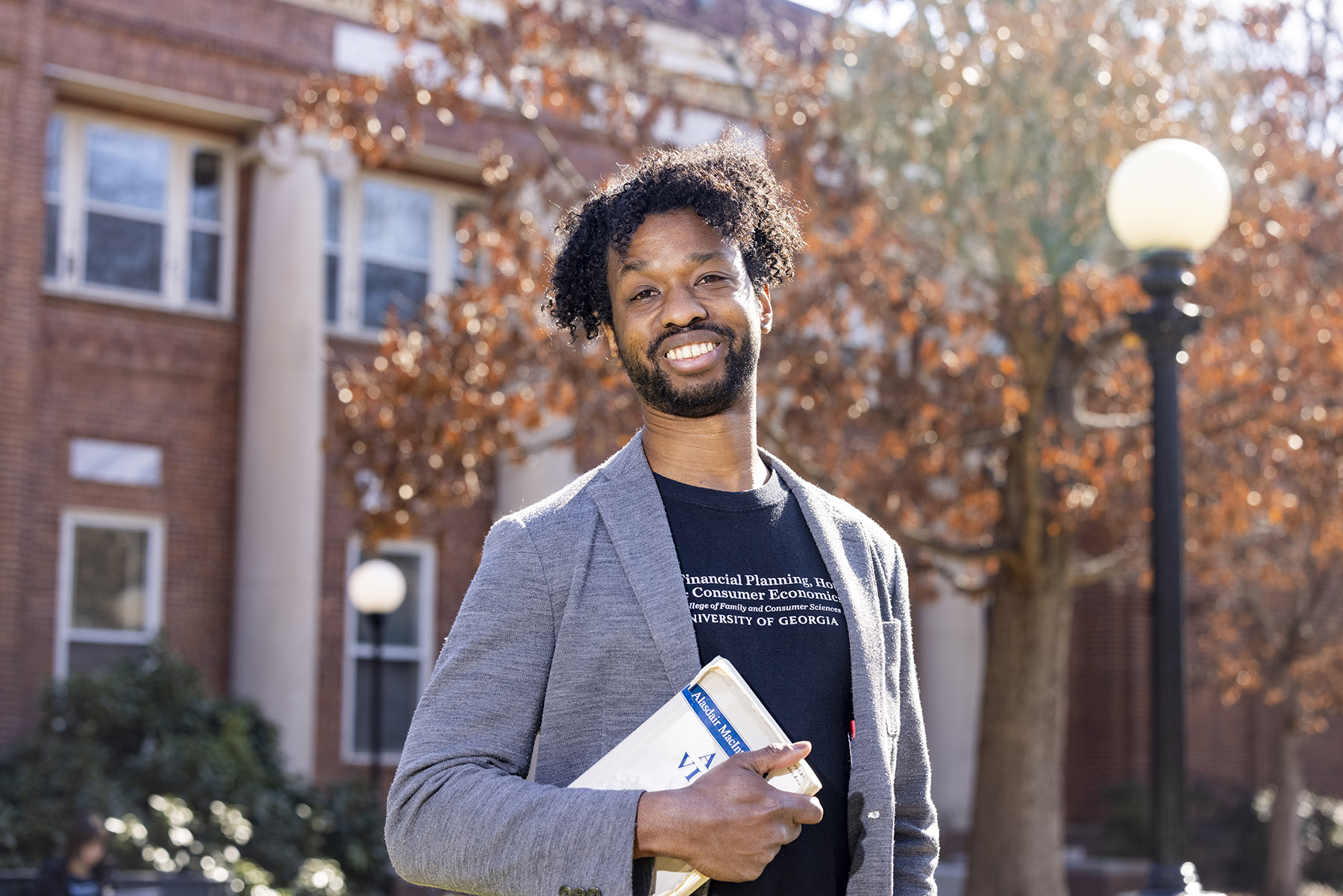When entering college, the extensive lists of majors, minors and certificates can make the decision of what to study very difficult. It can be hard for students to find where their passions fit into academia and the greater University of Georgia community. This is where academic advisors come in.
Ahmaud Templeton, an academic advisor in the College of Family and Consumer Sciences, works with multiple programs, including undecided students within the college. He helps to lead them through the decision-making process to find a perfect fit.
To do this, Templeton spends most of his day talking with students.
“My daily duties are very much student focused and student centric,” he said. He misses the times when students would just drop in and have a conversation. The COVID-19 pandemic has made many of his meetings virtual. “The biggest change for me is that I don’t have students dropping by randomly, and that’s one of the parts of my job that I really enjoy.”
The College of Family and Consumer Sciences covers a wide range of programs from consumer economics to housing management, and this means that many students find the FACS majors later in their college career. They rely on their academic advisors, Templeton among them, to guide them through their program and navigate toward a curriculum that’s going to work for them. Templeton says that it’s the relationships he builds with students that helps them be successful in the college.
“I wanted to be in a position where I have regular and persistent interaction with students,” said Templeton. “I think it’s only with that kind of persistent interaction that No. 1, you can develop a rapport with them, where they feel comfortable enough to ask you questions that they might not ask someone that they haven’t regularly seen and come to an understanding that this person is invested in my good and helping me to figure things out.”
Templeton holds degrees in philosophy and counseling, which is reflected in the way he approaches advisement. To him, moving through academia is an exercise in practical reasoning, and he uses research to help his students.
“One of the reasons I wanted to stay in higher education is because, while I don’t publish anything, I do research on my own. I do it in part to help me craft a better understanding of the work that I do and of what our college and what our faculty do,” he said. “If I were to go back and pursue like a Ph.D., it would probably be in educational theory.”
He approaches advising the same way a scientist approaches a problem. He asks questions, looks for data and then uses his findings to cultivate a better advising practice.
“My question always is, given who my students are, the individual persons who come to me, how do I better understand the kind of general human faculties? How do I help them hone those faculties so they can get to those things that they perceive or understand as good?” said Templeton.
But he doesn’t just save his research for the students he advises. He wants to improve advising across the college and is even working to write code for a new advising computer program that would streamline academic advising to make it more user-friendly and clarify the process for students.
“I actually started building my own [program]. I learned enough PHP to create one,” Templeton said. “So, I’m actually building our next advising software that we’re going to be using here at this college.”
Part of what makes Templeton a good advisor is his commitment to education.
“I really think everyone needs to see the importance of education, and that’s not just in higher education. Even within families, a mother and father have to think, ‘How is education happening in the home?’” he said.
He often takes his work home with him, mixing the boundaries between his work and personal life. “I don’t tend to compartmentalize my life in that way. There’s a lot of crisscross between my work and my labor both here and at home,” he explained.
Templeton said, “The question I always asked myself, or that I learned to start asking, when I was an undergraduate student was what kind of person do I need to become? And at certain stages that question changes. It changed a lot when I got married, when I started having children.”
He shares more than just his passion for education at home. Templeton first pursued a career in the movie industry, and he continues to have a love for film. A personal favorite is “Tree of Life” from director Terrence Malick.
“It’s an incredible piece of cinematic work. If you haven’t seen it, I highly recommend seeing it. If you’ve got a friend with an 85” QLED TV, try to see it on the biggest screen that you can. It’s a visually breathtaking film,” he said.
“I buy and watch a lot of movies that people would consider ‘artsy-fartsy,’” he said, but his love of film covers many genres, obvious by the large “Goonies” poster that adorns the wall in his office, welcoming students into his space.


